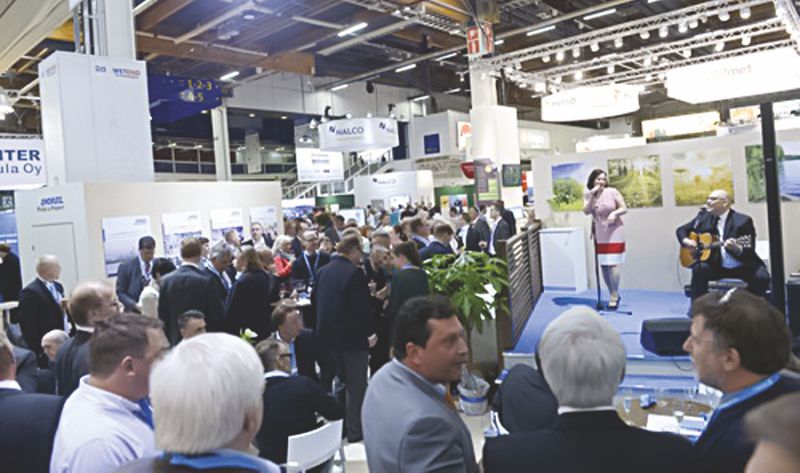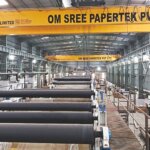PulPaper is the leading exhibition and conference event in the forest industry’s calendar. It will be held in Helsinki, Finland on 29–31 May 2018.
April 26, 2018

The forest industry is experiencing a transition period as the environmental impact of the sector is known better than before. The event takes this into consideration with a strong environmental perspective. The umbrella theme of the event is ‘Visit tomorrow today’. This refers to new innovations and technologies that the forest industry can harness to evolve in the digitalizing world, while respecting the environment.
PulPaper will feature a varied seminar program on all three days of the event. Business Forum is a seminar for company management, focusing on themes ranging from consumer habits to sustainable development and from innovations to changes in management.
PulPaper conference targeted at forest industry experts and researchers will be held from 30-31 May. There will be 40 experts, researchers and company representatives from the Nordic countries, Japan, North America, and other parts of the world, who will speak at the seminar. The themes include the circular economy, biomass use, climate change, and bio refinery development.
Environmental Friendliness as Competitive Advantage
Environmental standards are often seen as a burden on industry. However, PulPaper approaches this topic through opportunities. As environmental friendliness and responsible production are increasingly guiding the purchasing behavior of consumers, innovations that cater to consumers’ wishes in terms of ecology, functionality, aesthetics and price level are emerging as competitive advantages for companies.
PulPaper Conference swings the spotlight on many innovations that are revolutionizing the whole industry. These include data-based sensors used in pulp industry wastewater treatment, a new catalytic bleaching method and the utilization of industrial waste as an agricultural fertilizer. In addition, the conference will present a research project that seeks a breakthrough technology for chemical pulp production.
Wooden Future of Packaging Materials
Plastic is the dominant packaging material the world over. Due to its long decomposition period, plastic waste places a great burden on the environment. Almost all fields of industry have started using bio plastic: electronics, agriculture, textiles and healthcare. Wood is envisioned as the renewable raw material of the future, which will be used in both packaging materials and textiles.
PulPaper conference will present solutions based on renewable wood materials to replace fossil-based materials. The Swedish startup Cellutech will reveal what new materials the company is currently developing from wood. The current development of bio plastics will also be reviewed. The Finnish packaging startup Sulapac will be presented as a business case that provides a great example of ingenious packaging design. Its packaging materials are made from wood and intended for cosmetics products. They turn ecology into a luxury. Sulapac has a competitive edge because it can compete in terms of price with comparable packaging materials made from plastic, and the material can be mass produced with the same equipment as plastic.
PulPaper conference will also deal with the use of forest biomass and the management of climate change. Speakers will address regulations related to the industry at the EU level and ponder the availability of biomass and related policies.
3D Printing of Biomaterials
The 3D Printing of Biomaterials seminar will also be held at PulPaper. When it comes to printing materials, the development of biomaterials opens up plenty of opportunities for new value-added uses of cellulose. 3D printing of biomaterials provides companies with a way to make cost-efficient customized products that save on materials and are environmentally sustainable. The seminar will present promising examples of cellulose-based insulation materials, for example.



